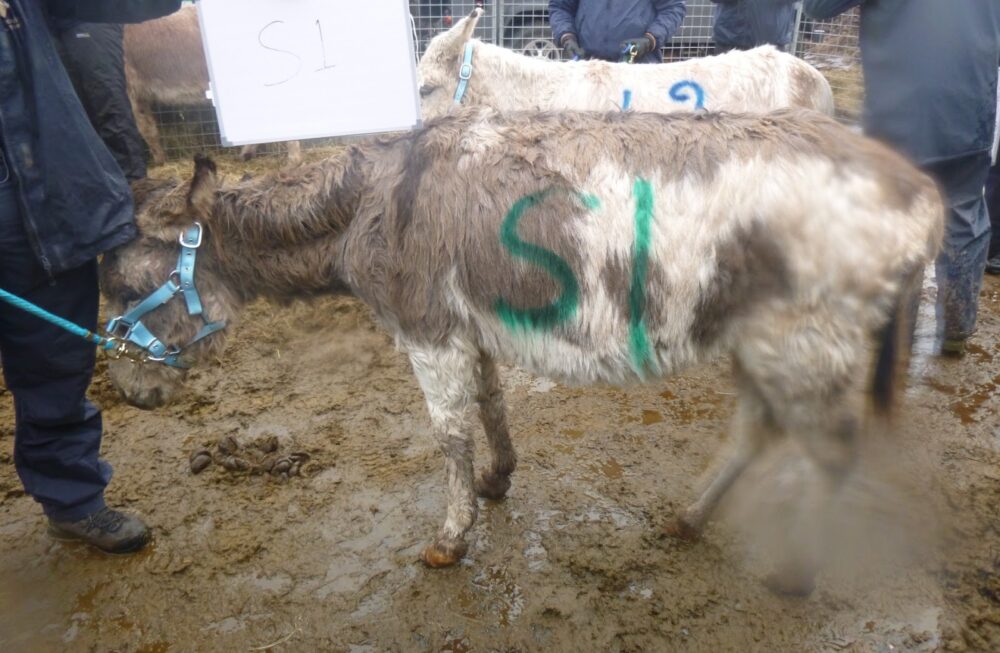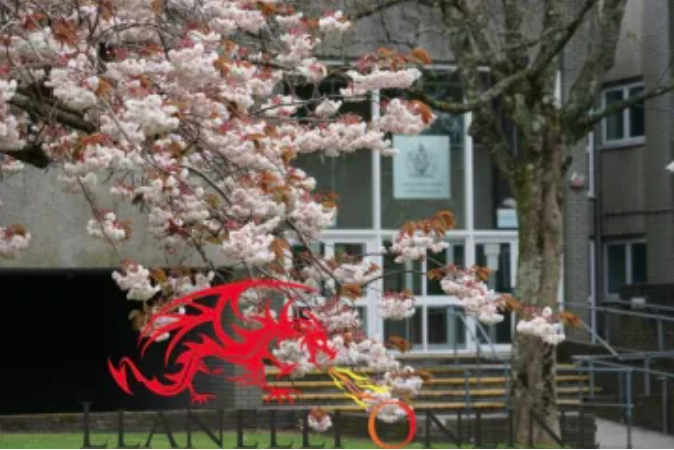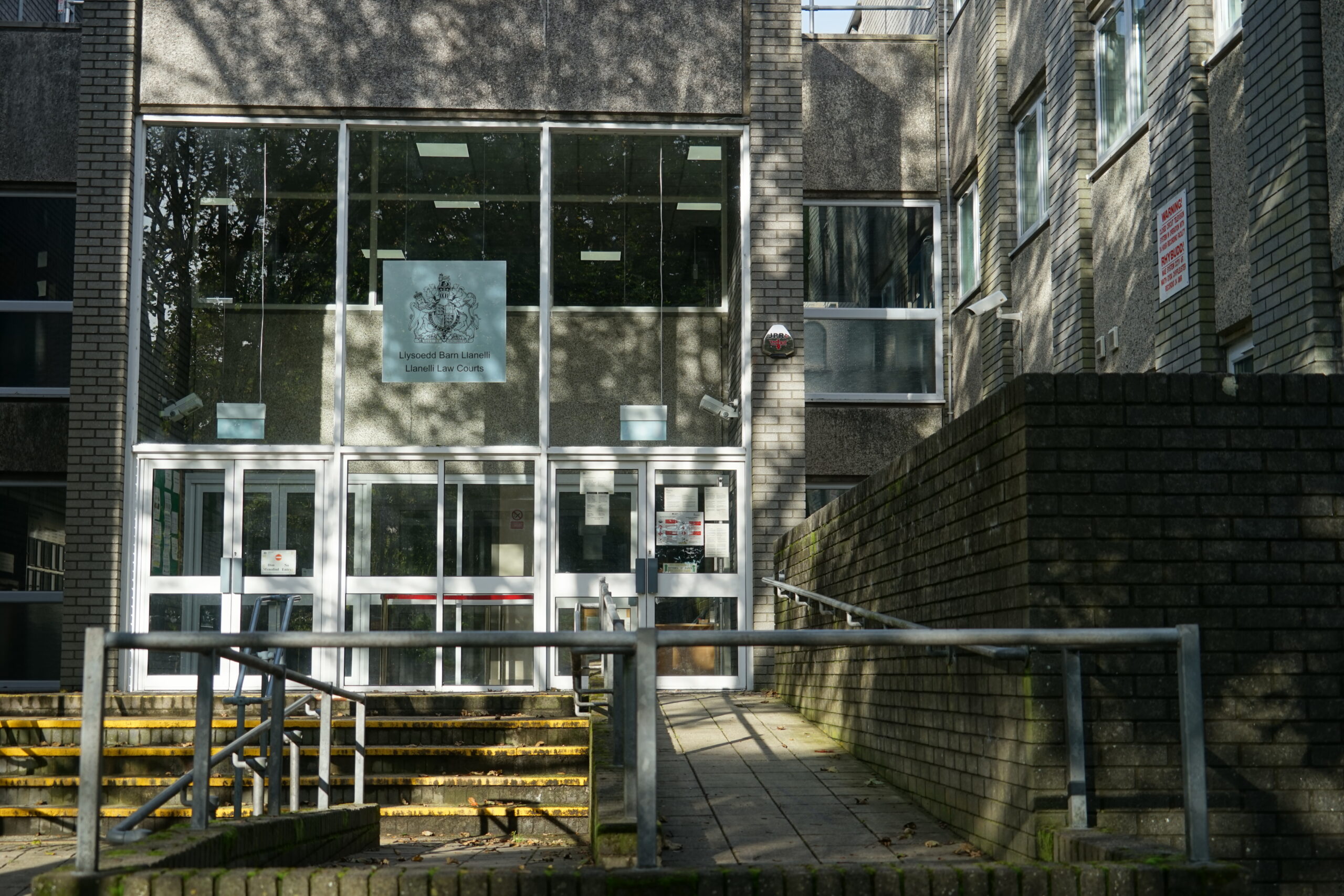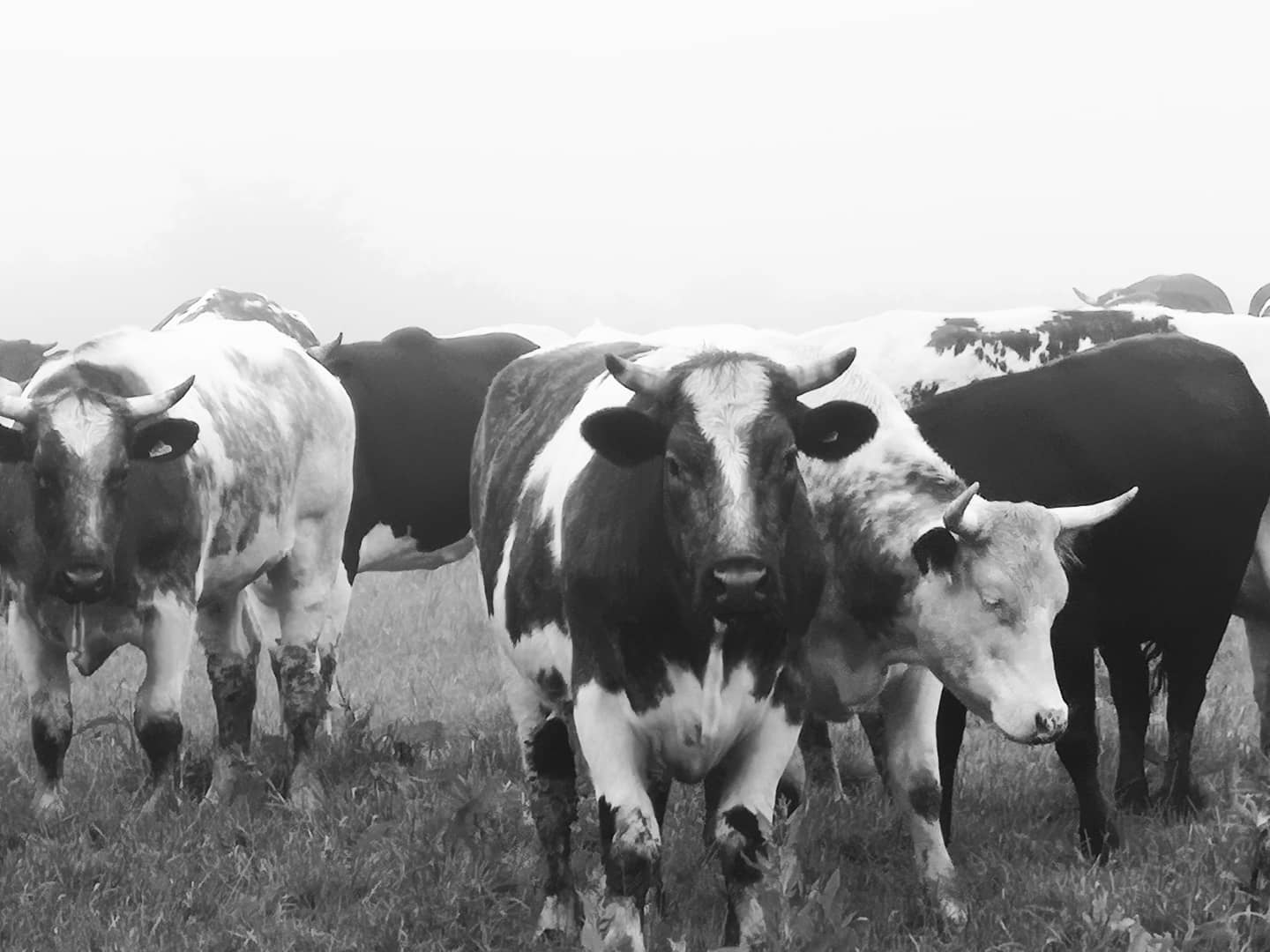A Carmarthenshire woman who caused the unnecessary suffering of 24 donkeys has been handed an 18 weeks prison sentence, suspended for two years.
It follows a multi-agency operation in February 2021 where 72 donkeys and one horse were taken into possession by police on welfare grounds following veterinary examinations.
Zoie Celina Burton of Heol Llanelli, Pontyates, Llanelli, appeared at Llanelli Magistrates’ Court on Tuesday 20 September where she pleaded guilty to two offences under the Animal Welfare Act.
The offences were that she caused unnecessary suffering to 24 donkeys in that she failed to ensure adequate hoof care for them and she did not take steps to ensure the needs of 22 donkeys and a pony were met in that she did not provide them with a suitable environment.
At sentencing yesterday (Tuesday 11 October) at Swansea Magistrates Court she was handed an 18 week prison sentence – suspended for two years – with an additional requirement to attend 25 Rehabilitation Activity Requirement days. She was also banned from keeping equines for 10 years. Burton was ordered to pay £1,000 prosecution fees and a £128 victim surcharge and a deprivation order was made for all the animals.
The court heard Dyfed-Powys Police obtained a warrant to enter Iscwm Farm, Pontantwn, Kidwelly in February 2021 – following concerns of the welfare of equines housed there.
The RSPCA-led operation was carried out in conjunction with The Donkey Sanctuary, World Horse Welfare, the British Horse Society, Bransby Horse Rescue and Welfare and two veterinary surgeons from Redwings. Two independent vets also attended the address along with Dyfed-Powys Police officers who executed the warrant.
There were around 100 equines on site – and following veterinary examinations, 72 donkeys and one horse were taken into possession by police. One donkey which was examined by one of the vets on site, was put to sleep by the owner’s own vet on welfare grounds.
In a written statement presented to the court, RSPCA inspector Keith Hogben, said Burton knew there were some problems with hooves and said the farrier was coming the following day.
He added: “Zoie Burton informed me that the farrier comes once a week and he was due the previous day but she had to cancel as she was not feeling well.”
One of the attending vets in a statement said: “The severely overgrown hooves were very easy to see by a lay person and the owner should have sought both veterinary and farrier attention to this.
“A responsible horse and donkey owner should be expected to provide farrier treatment every 4-8 weeks minimum.”
One skewbald female donkey – known for court purposes as S1 – had been found in a barn which was “an unsuitable and unsanitary environment for the donkey to be kept in”.
The vet statement added: “The donkey had overgrown hooves with the left fore hoof being deformed and twisted.
“The hoof was chipped off and the laminae were exposed. There was white line disease and thrush in all four feet due to lack of adequate hoof care and lack of suitable environment.”
Another donkey – known as S4 – a chestnut roan female mammoth donkey – was also found in the same barn.
The vet statement said: “The right fore hoof was rocking laterally due to the overgrowth. The right hind was rocking backwards on to the heels due to the length of the foot. The left hind was curling up.”
This donkey who was weight shifting on its limbs when stood still was given pain relief to travel to the donkey sanctuary.

The donkeys were placed into the care of The Donkey Sanctuary and the pony – initially taken in by World Horse Welfare – is now in the care of the RSPCA.
Following more than a year of patient rehabilitation in the care of The Donkey Sanctuary, many of the donkeys are thriving, although some continue to require specialist care and treatment. Since their arrival, 20 foals have been born to the pregnant mares that were among the group.
Hannah Bryer, Head of Welfare at The Donkey Sanctuary said: “A moment that will forever stick in my mind on the day of the warrant was when the doors opened to one of the barns, and the faces of about 20 donkeys were staring back at us from the darkness.
“They were filthy and standing in dirty conditions. Some of the donkeys had very overgrown hooves and were lame. Cases like this are never easy to witness and are a stark reminder of the welfare challenges facing donkeys in Great Britain today.”
Executive Director of Equine Welfare at Bransby Horses, Emma Carter, said: “Bransby Horses will always support other charities across the UK when there are large numbers of animals involved. In this case we were able to share our expertise and specialist equipment and work as part of a bigger team to achieve the best outcome. That said, it is always distressing and shocking to work on such large cases where multiple animals are involved.”
RSPCA inspector Keith Hobgen, who led the RSPCA prosecution case, praised all those involved in the rescue.
He said: “It is very sad to see a case like this where so many animals are suffering. It is a huge challenge looking after this number of equines and unfortunately in this case their needs were not met.
“We’re so grateful to the other equine organisations who supported this operation which was such a huge undertaking. It’s a powerful illustration of what we can achieve together for animal welfare.
“In particular we’d like to thank The Donkey Sanctuary for taking on the 71 donkeys and for their on-going care – alongside the 20 foals that were also born.
“Now the case has concluded they can be rehomed by our partners and we look forward to hearing about their new homes from them in the near future.”
Please donate here: Support Carmarthenshire News Online Thank you for supporting independent journalism and contributing to the future of local news in Carmarthenshire. Carmarthenshire News Online has been dedicated to providing unbiased and trustworthy news, free from commercial or political influence. By donating as little as £1, you can help ensure the continuation of this important source of information for the community. Your contribution will have a significant impact on the sustainability of independent journalism. If you're looking to enhance your brand's visibility, we also offer advertising opportunities on our Livestream and podcasts. Our special offers provide excellent value for reaching our engaged audience. To learn more about these opportunities and to discuss your advertising needs, please feel free to call or text us at 07308598604. Thank you again for your support, and together we can ensure the availability of quality local news for Carmarthenshire and beyond.
Please donate here: Support Carmarthenshire News Online







